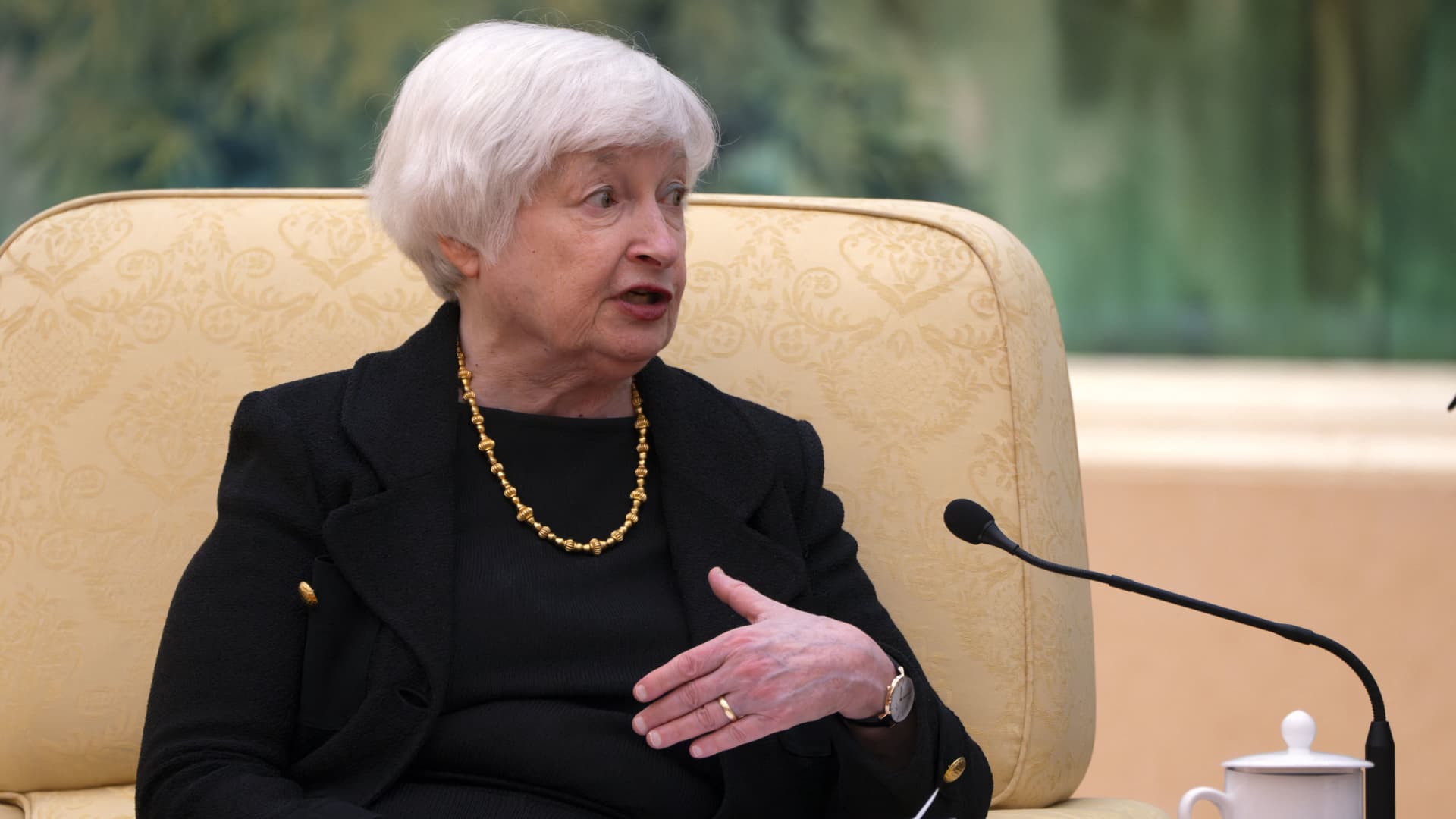Yellen stresses ‘fair’ rules, communication in Beijing meetings

US Treasury Secretary Janet Yellen speaks during a meeting with Chinese Premier Li Qiang (not shown) at the Great Hall of the People in Beijing on July 7, 2023.
Mark Schiefelbein | Afp | Getty Images
The United States and China, the world’s two biggest economies, must compete fairly and communicate closely to avoid misunderstandings, U.S. Treasury Secretary Janet Yellen said in Beijing on Saturday.
Yellen, continuing her meetings with top Chinese officials, told Vice Premier He Lifeng that a 2022 record in bilateral U.S.-Chinese trade — set despite recent tensions — showed there is “ample room for our firms to engage in trade and investment.”
But it was critical to keep talking about areas of common interest, as well as disagreements, she said in prepared remarks.
Meeting her at the Diaoyutai state guest house, where foreign dignitaries are often received in Beijing, He said he stood ready to work with Yellen.
“Amid a complicated global economic outlook, there is a pressing need for the two largest economies to closely communicate and exchange views on our responses to various challenges,” she said.
Doing so could “help both sides more fully understand the global economic outlook and make better decisions to strengthen our economies,” she said.
Despite talk of U.S.-China economic decoupling, recent data show a trade relationship that is fundamentally solid, with two-way trade hitting a record $690 billion last year.
Yellen repeated her mantra that Washington is not seeking a winner-take-all approach or economic advantage in its relations with China, but wanted to ensure a healthy competition with a “fair set of rules” that would benefit both countries over time.
The United States would continue to communicate directly its concerns about specific economic practices, and would take targeted actions to protect its national security, Yellen said.
She urged China not to allow any disagreements to “lead to misunderstandings, particularly those stemming from a lack of communication, which can unnecessarily worsen our bilateral economic and financial relationship.”








